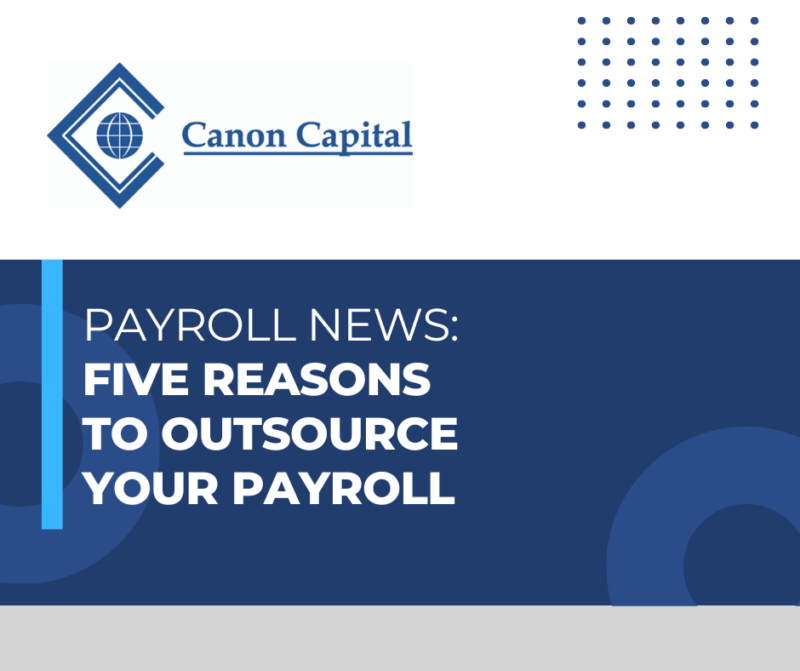
You are invited to join us for a webinar on Wednesday August 6, 2025, from 10:00 to 11:30 am via Zoom for a session with Steven Moyer, CPA/PFS, CGMA, CSEP and Brent Thompson, CPA, CMA, CGMA as we discuss what this means for you and your business. This event is free of charge, but you must register to receive the Zoom link. Please register by Friday August 1, 2025. After registering, you will receive a confirmation email containing information about joining the meeting. You DO NOT need to be a Canon Capital client to attend, so feel free to share this with business acquaintances. Register here.
Until then, this blog post outlines a summary of the key changes.
What the New “One Big Beautiful Bill Act” Means for You: A Practical Look at H.R. 1
On July 4, 2025, President Trump signed H.R. 1, the “Big Beautiful Bill Act,” (BBBA) into law. It’s being called the biggest update to the tax code since 2017, touching nearly every corner of the Internal Revenue Code, affecting individual, business, international, energy, and education tax provisions.
Prior to being signed into law, the Senate made several changes to the House-passed version, including making full expensing permanent, adjusting the phase-out of clean energy credits, and modifying the SALT deduction cap.
What does it all mean for you, your family, or your business?
Highlights for Individuals
Permanent Lower Individual Tax Rates
The reduced individual tax rates (10,12,22,24,32,35 & 37%) established by the 2017 Tax Cuts and Jobs Act (TCJA) are made permanent, preventing a scheduled reversion to higher pre-2018 rates after 2025.
Standard Deduction and Personal Exemptions
The increased standard deduction is made permanent and further increased to $23,625 for heads of household and $15,750 for singles, and $31,500 for married filing joint effective after 2024.
The suspension of personal exemptions is made permanent, except for a new $6,000 deduction for seniors (age 65+), available through 2028 and phased out at higher incomes.
Child Tax Credit
The expanded child tax credit is made permanent, increased to $2,200 per child with inflation adjustments, and includes stricter Social Security Number (SSN) requirements.
Qualified Business Income Deduction (Section 199A)
The phase-in threshold is increased to $75,000 ($150,000 joint), and a $400 minimum deduction is established for active business income, with inflation adjustments.
Estate & Gift Tax
The exemption is permanently increased to $15 million (indexed), effective for estates and gifts after 2025.
Alternative Minimum Tax (AMT)
Increased exemption and phaseout thresholds are made permanent, with modifications to inflation adjustments and phaseout rates.
Other Notable Individual Provisions
- Mortgage interest deduction: $750,000 cap made permanent; restores mortgage insurance premiums treated as interest.
- Casualty loss deduction: Limitation to federally declared disasters is made permanent and expanded to include state-declared disasters.
- Miscellaneous itemized deductions: Suspension made permanent, except for expanded educator expenses.
- Itemized deduction limitation (Pease): New formula reduces itemized deductions by 2/37 of the lesser of deductions or income above the 37% bracket threshold.
- State and local tax (SALT) deduction: Cap increased to $40,000 ($20,000 MFS) for 2025, indexed for inflation, with a phase-down for high incomes, reverting to $10,000 after 2029.
- Temporary deductions: New deductions for tips, overtime pay, and interest on loans for new U.S.-assembled vehicles (2025–2028), all phased out at higher incomes.
What Business Owners and Investors Need to Know
Full Expensing and Depreciation
- 100% bonus depreciation for qualified business property is made permanent.
- Section 179 expensing limit increased to $2.5 million, with a phaseout at $4 million, both indexed for inflation.
- Special 100% expensing for certain nonresidential real property used in qualified production activities.
Research & Development
Domestic research and experimental expenditures can be fully expensed immediately; foreign R&D remains amortized over 15 years.
Business Interest Deduction
EBITDA add-back is restored permanently, increasing allowable business interest deductions.
Advanced Manufacturing Investment Credit
Credit increased to 35% of qualified investment.
International Tax Reform
- Modifications to the foreign tax credit, including an increase in the deemed paid foreign tax credit percentage to 90%.
- Changes to sourcing rules for inventory sales.
- Modifications to FDII and GILTI deductions (GILTI renamed “net CFC tested income” and the deemed return repealed).
- Look-through rule for related CFCs made permanent; 1-month deferral election for specified foreign corporations repealed; downward attribution of stock ownership limited.
Family, Education & Community Incentives
Employer-Provided Child Care Credit
Credit increased to 40% (50% for small businesses), up to $500,000 ($600,000 for small businesses), with inflation adjustments.
Adoption and Dependent Care
- Up to $5,000 of the adoption credit is refundable, with inflation adjustments.
- Dependent care assistance exclusion limit increased to $7,500 ($3,750 MFS).
- Child and dependent care tax credit: Applicable percentage increased to 50%, phased down at higher AGI levels.
Education Incentives
- New $1,700 federal credit for individual contributions to state-approved K-12 scholarship organizations.
- 529 account qualified expenses expanded; annual limit for K-12 expenses increased to $20,000.
Community Development
- Opportunity Zones: Designations and benefits made permanent, with decennial re-designation, expanded reporting, and new rural opportunity funds.
- Low-Income Housing and New Markets Tax Credits: Both made permanent, with enhancements.
Charitable, Nonprofit & Estate Rules
Above-the-Line Charitable Deduction
Increased to $1,000 ($2,000 joint) and made permanent.
Charitable Deduction Floors
0.5% floor imposed for individuals and 1% for corporations, with carryforward rules.
Excise Tax and Compensation
- Graduated excise tax rates on private college endowments, with expanded definitions of investment income.
- Tax on excess compensation: Definition of covered employees expanded to include any employee or former employee ever covered after 2016.
Energy, Crypto & Other Miscellaneous Updates
Clean Energy Credits
Credits for clean vehicles, alternative fuel property, energy-efficient home improvements, residential clean energy, and others are terminated earlier than under prior law.
Restrictions on Foreign Ownership
Several energy credits denied to specified foreign entities and foreign-influenced entities.
Phase-Outs and Modifications
Clean fuel production credit extended through 2029 but limited to fuels from U.S., Mexico, or Canada feedstocks; negative emission rates generally prohibited except for animal manure fuels.
Other Notable Provisions
Trump Accounts
New tax-advantaged accounts for children under 18, with a $5,000 annual contribution limit and a $1,000 government-funded pilot for newborns (2025–2028).
Reporting Thresholds
1099-MISC/NEC threshold increased to $2,000, indexed for inflation; de minimis threshold for third-party network transactions restored to $20,000/200 transactions.
Litigation Financing Tax
Proposed tax on litigation financing contracts was removed from the final law.
Crypto Reporting
IRS reporting requirements for DeFi digital asset brokers repealed; IRS prohibited from issuing similar rules in the future.
Procedural and Effective Dates
Most provisions take effect for tax years beginning after December 31, 2024, or December 31, 2025, with some exceptions for specific credits, deductions, and reporting requirements.
The Bottom Line
This new law is dense and far-reaching. While some changes bring permanent certainty (like the individual tax rates and business expensing), others have ticking clocks, with phase-outs and special deductions set to expire in a few years. Taxpayers should review these changes carefully and consult their tax advisors to assess the impact on their specific circumstances and to plan accordingly for the new law’s various effective dates and transitional provisions.
Next Steps
It’s a great time to review your tax planning. Let us help you understand how these changes could impact you and create a strategy to make the most of the new rules. Contact us online or call 215-723-4881.









